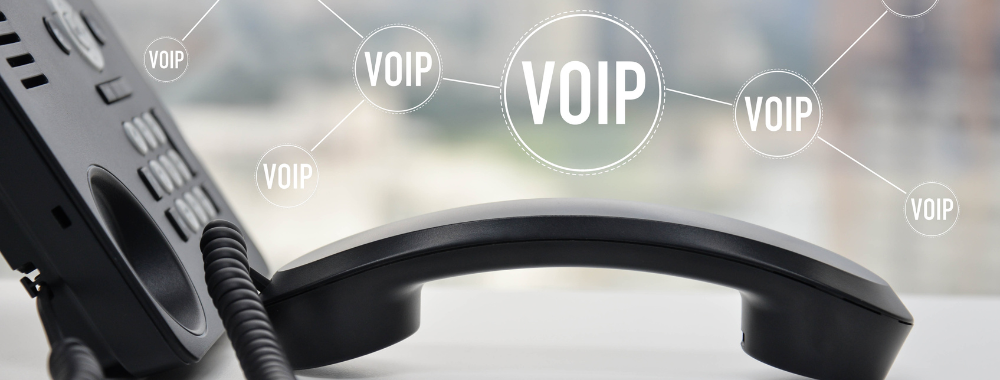
One of the most common questions we receive from our clients is ‘what is VoIP’ closely followed by ‘how does it work for dental practices’? In this beginner’s guide to VoIP in the dental industry, we will answer what it is and how it works to ensure a seamless communication line between you and your patients.
VoIP (Voice Over Internet Protocol) is a phone technology system that enables dental practices to make and receive phone calls using the Internet instead of traditional phone lines.
With this you can take business phone calls from multiple devices, such as laptops, tablets, regular smartphones (using an app), and even VoIP-compatible office phone sets. This flexibility is unlike traditional landline phone systems, which are limited to a single desk phone in your dental office.
Making calls over the Internet has made VoIP a highly cost-effective solution for domestic and international calls. As an added incentive, business VoIP providers usually provide unlimited minutes at no extra cost.
Besides cost savings, VoIP provides advanced phone features such as call waiting, call routing, caller tones, auto-attendant, multiple phone numbers, and more. As a result, it’s unsurprising that many dental practices, small and large, are transitioning from traditional phone providers to business VoIP providers.
To understand how VoIP works, let’s delve into what happens when you make or receive a phone call.
When you initiate a phone call through VoIP, the business phone number app or VoIP adapter converts the analogue audio signal into a digital signal. This digital voice data is transmitted to the business phone service provider via your internet connection and finally routed to your patient’s phone.
Although it sounds like a lengthy chain, the entire process occurs instantly, empowering a premium sound quality, often better than your traditional phone calls.
VoIP operates differently behind the scenes compared to traditional landline phone systems.
Traditional telephony systems use the circuit-switching method to connect calls. When you call through the Public Switched Telephone Network (PSTN), a circuit connects you to the person on the other end.
Circuit switching technology has been in use for over a hundred years. While it is reliable and still functional, more efficient and cost-effective methods exist.
On the other hand, VoIP employs the packet-switching method, meaning it only sends data when necessary. A brief, instant transmission of voice data occurs in small packets, which reassemble at the receiving end. This method allows for more efficient use of network resources and enables the transmission of voice, video, and other data simultaneously.
Now that we have a basic understanding of what VoIP is and how they work let’s explore the advantages and disadvantages of using VoIP for dental practices.
The final consideration is which product to choose. Here are some of the most essential factors to consider:
VoIP offers numerous benefits for dental practices, including cost savings, flexibility, and advanced communication features. While it does have its limitations, such as reliance on a stable internet connection, you can mitigate these with the proper infrastructure and contingency plans.
By choosing a reliable provider, understanding the features and pricing plans, and ensuring your dental practice has a robust internet connection, you can leverage the advantages of VoIP to enhance communication, streamline operations, and provide a better experience for your patients.
We hope this article has provided valuable insights into VoIP and how it can benefit your dental practices. If you have any further questions or need assistance implementing VoIP in your dental practice, please get in touch with us here or at 020 8799 6883!
Microminder is the leading strategic IT business partner in the dental sector – we have been proudly supporting the dental community for over three decades.
We pride ourselves on building lasting relationships with our clients where they trust us with their IT strategy, implementation and ongoing support, allowing them to focus on patient care.
Microminder’s experts are passionate about technology and are always on hand to support and guide you, so please get in touch today:
Call us on 0208 799 6883 or follow us on social media.
Back to News